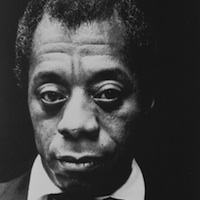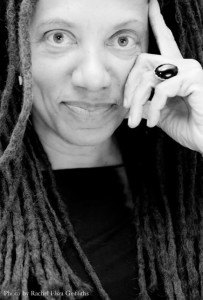Tags
Related Posts
Share This
Tribute to James Baldwin

The Lensic hosts a tribute to the great American novelist, poet, essayist, playwright, and social critic James Bladwin
Wednesday, Feb. 11, at Santa Fe’s Performing Arts Center The Lensic Performing Arts Center, the Lannan Foundation hosted The Fire This Time, a tribute reading to the African American novelist, poet and essayist James Baldwin, whose honest and evocative words (read 30 years later) seemed to send tremors through the 21st century audience.
Often called an activist writer, Baldwin’s works like Notes of a Native Son and The Fire Next Time read aloud by Wednesday’s visiting authors reminded the audience that even up to his death in 1987, Baldwin had prophetic visions for his imperfect country. From sexuality, racism, religion and literature, Baldwin’s excerpts, as well as excerpts from Nikky Finney, Randall Kenan, Kevin Young, and Amy Bloom’s works, complemented the spirit of Black History Month and perhaps even the spirit of the approaching Valentine’s Day.
“He was filled with so much love for a better world,” said author Nikky Finney in response to the question of Baldwin’s diverse and often controversial writing from Q&A host Kevin Young. “He was not waiting for permission to be this writer,” Finney said. “He followed his heart and had courage to keep writing.” Recounting some footage Finney watched of a reporter pointing out Baldwin’s disadvantages—abusive step ather, low class, black, gay, etc.—Finney remembered Baldwin’s reply to the reporter: “‘These were all blessings.”
On the same question, author Amy Bloom, whose works such as Lucky Us expresses love in all forms, said: “If [Baldwin] wasn’t so various then I wouldn’t be here.” Bloom continued expressing her deep appreciation for Baldwin’s “beautiful and often dense” writing by quoting the author himself:
Passion is not friendly it is arrogant superbly contemptuous of all that is not itself it has a might it contains a challenge it contains an unspeakable hope.
And on the subject of racism, Finney read excerpts from Jimmy’s Blues, Baldwin’s first and only poetry collection, introducing the character Staggerlee, whom Finney described as the “great black american folk hero” who is “starring into the eyes of white power and privilege and also into the eyes of what happens to us when we are blinded by racism.” Finney read from Baldwin’s following poem titled “Staggerlee Wonders”:
I always wonderwhat they think the niggers are doing
while they, the pink and alabaster pragmatists,
are containing
Russia
and defining and re-defining and re-aligning
China,
nobly restraining themselves, meanwhile,
from blowing up that earth
which they have already
blasphemed into dung:
the gentle, wide-eyed, cheerful
ladies, and their men,
nostalgic for the noble cause of Vietnam,
nostalgic for noble causes,
aching, nobly, to wade through the blood of savages— (Baldwin, 1986)
A particularly moving moment of the night came when Finney read a section from her introduction to Penguin Press’s reissue of Jimmy’s Blues. In it, she personifies Baldwin as he is speaking to his fellow working class. “He looks at them with the greatest love,” Finney read, “he can see the oil and the water on their cheeks, he says there will be a negro president because it will not be the country we’re sitting in today. Baldwin was never afraid to say it because Baldwin saw us long before we saw ourselves.”
By the end of the night, all the writers agreed that Baldwin’s work was a necessary influence for upcoming writers despite the fact, author Randall Kenan said, that “writing has been regulated to a marginal part of our dialogue.” According to Kenan, no one has yet to capture the style and courage of the great James Baldwin, we must therefore keep reading.
Emphasizing Baldwin’s ability to be truthful, the Lannan guests also agreed on Baldwin’s gift for identifying love in all forms and across all time. “Again, it’s the love thing,” Finney added. “If you don’t come from that first, you miss everything.”
And despite the author’s reputable and harsh regard for American culture, Finney ended the discussion by evoking Baldwin saying, “yes, I will critique this country, because I love it, because this is where I’m from.”







 Jackalope Magazine is the student magazine of Santa Fe University of Art and Design. Building on the interdisciplinary nature of our education, we aim to showcase the talent of our university and character of our city.
Jackalope Magazine is the student magazine of Santa Fe University of Art and Design. Building on the interdisciplinary nature of our education, we aim to showcase the talent of our university and character of our city.
Recent Comments